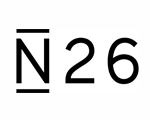Portugal has a lot of different types of banks that offer a wide range of accounts, from standard and savings, to business and online accounts.
The biggest banks are members of the Associação Portuguesa de Bancos (APB - Portuguese Banking Association), made up of 23 banks that own more than 90% off all the assets in the country.
The biggest bank in Portugal is the state-owned Caixa Geral de Depósitos (CGD). Other large national banks are Banco Comercial Português (BCP), the largest private bank in the country, Banco Santander Totta, and Novo Banco. There are also several international banks including Barclays, Citibank and Deutsche Bank. Remember that often you won’t be able to find someone who speaks English, especially in the national banks, so if you don’t speak Portuguese, either bring someone with you that understands the language or choose a bank with English-speaking staff.
Services
ATM machines, called Multibanco, are widely available throughout the country. A broad range of services can be performed using these machines, including payments and phone top-ups. Because of the multifunctionality and the broad availability, including even in supermarkets, the Portuguese ATM network is considered one of the best in the world.
You can use your own foreign Visa card at most ATMs, but it is advisable to do so only if you are in the country for a short time, as foreign cards usually incur charges. Be warned, however, that many establishments such as bars and restaurants will refuse payment on foreign cards.
Keep in mind as well that banks are generally only open between 8.30am and 3pm, excluding weekends. The quietest time to visit tends to be between 10.00am and 11.30am.
The Central Bank
All national banks report to the Banco de Portugal, the Portuguese central bank, which monitors and set standards for them. It is also a constituent of the European System of Central Banks. Nowadays, many of its original roles have been taken over by the European Central Bank.
After the economic crisis, many Portuguese banks found themselves in trouble, warranting the intervention of the central bank. For example, it split the then second largest bank Banco Espírito Santo into two, creating Novo Banco to rescue assets and liabilities.


